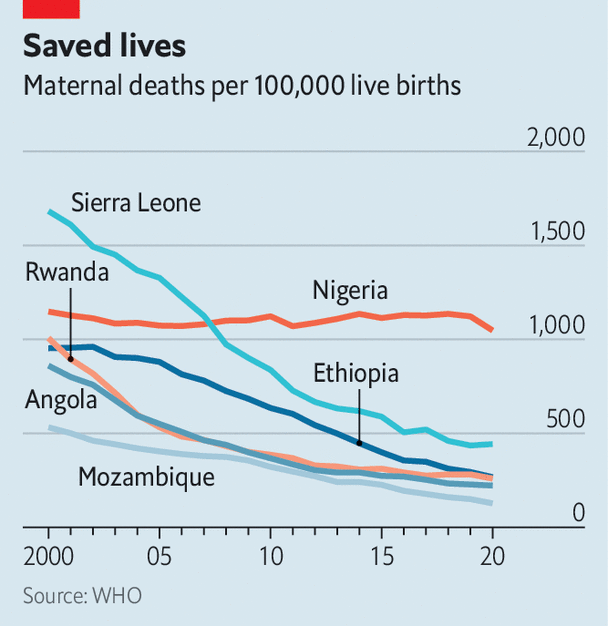The Reality of Maternal Health in Nigeria
- LAOF Staff
- 3 days ago
- 2 min read

Picture this: You’re expecting a baby, a moment that should be filled with joy. But in Nigeria, this joy is often overshadowed by a harsh reality—one where giving birth can be a life-or-death situation. Every day, hundreds of women face complications simply because they are pregnant. So, what’s the health score for Nigerian mothers? The numbers paint a sobering picture.
The Hard Truth
Nigeria ranks as the second-highest contributor to maternal deaths globally, accounting for 12% of all maternal fatalities. Every year, about 58,000 women lose their lives due to pregnancy-related complications, most of them preventable. For every 100,000 live births, 512 Nigerian mothers die, compared to the global average of 211 per 100,000.
To put it in perspective, a Nigerian woman has a 1 in 22 chance of dying due to pregnancy or childbirth complications in her lifetime. In contrast, that number is 1 in 4,900 in developed countries. These numbers represent real women—wives, daughters, mothers, and sisters—who deserved a fighting chance.

Why is Maternal Health Struggling?
The challenges are complex, but they all lead to the same devastating outcome: too many women die simply because they don’t have access to quality healthcare.
Lack of Skilled Care: 61% of births happen without trained medical professionals. In rural areas, hospitals are either too far, understaffed, or under-equipped.
Teenage Pregnancy Risks: Nearly 19% of Nigerian girls aged 15-19 are already mothers, facing higher risks of complications like obstructed labor and eclampsia.
Poverty & Cultural Barriers: Early marriage, female genital mutilation, and limited education put many women at higher risk. The poorest women are three times more likely to die during childbirth than wealthier women.
The Ripple Effect
When a mother dies, the effects reverberate through the entire family and community. Children who lose their mothers are less likely to survive past age five, and households often fall deeper into poverty. Despite the grim statistics, there’s hope! These deaths are preventable. By investing in maternal health, Nigeria can change its narrative.
Strengthen the Primary Healthcare System: Improving access to well-equipped and well-staffed health centers, especially in rural areas, is critical. Policies like the Basic Healthcare Provision Fund (BHCPF) are already steps in the right direction, but implementation and monitoring need to be stronger.
Promote Family Planning Services: Investing in reproductive health education and making contraceptives accessible and affordable will help reduce unplanned pregnancies and give women more control over their health.
Increase Antenatal & Skilled Birth Attendance: Encouraging antenatal visits and ensuring that more women deliver with skilled birth attendants will reduce risks of complications.
Public-Private Partnerships: Collaboration between the government, NGOs, and private organizations can help make maternal healthcare more accessible and sustainable.
At Lady Adaure Outreach Foundation, we are actively ensuring that no mother faces childbirth without support. Through health fairs, community outreach, and advocacy, we are creating change. Join us in this fight because no woman should fear giving birth.

コメント